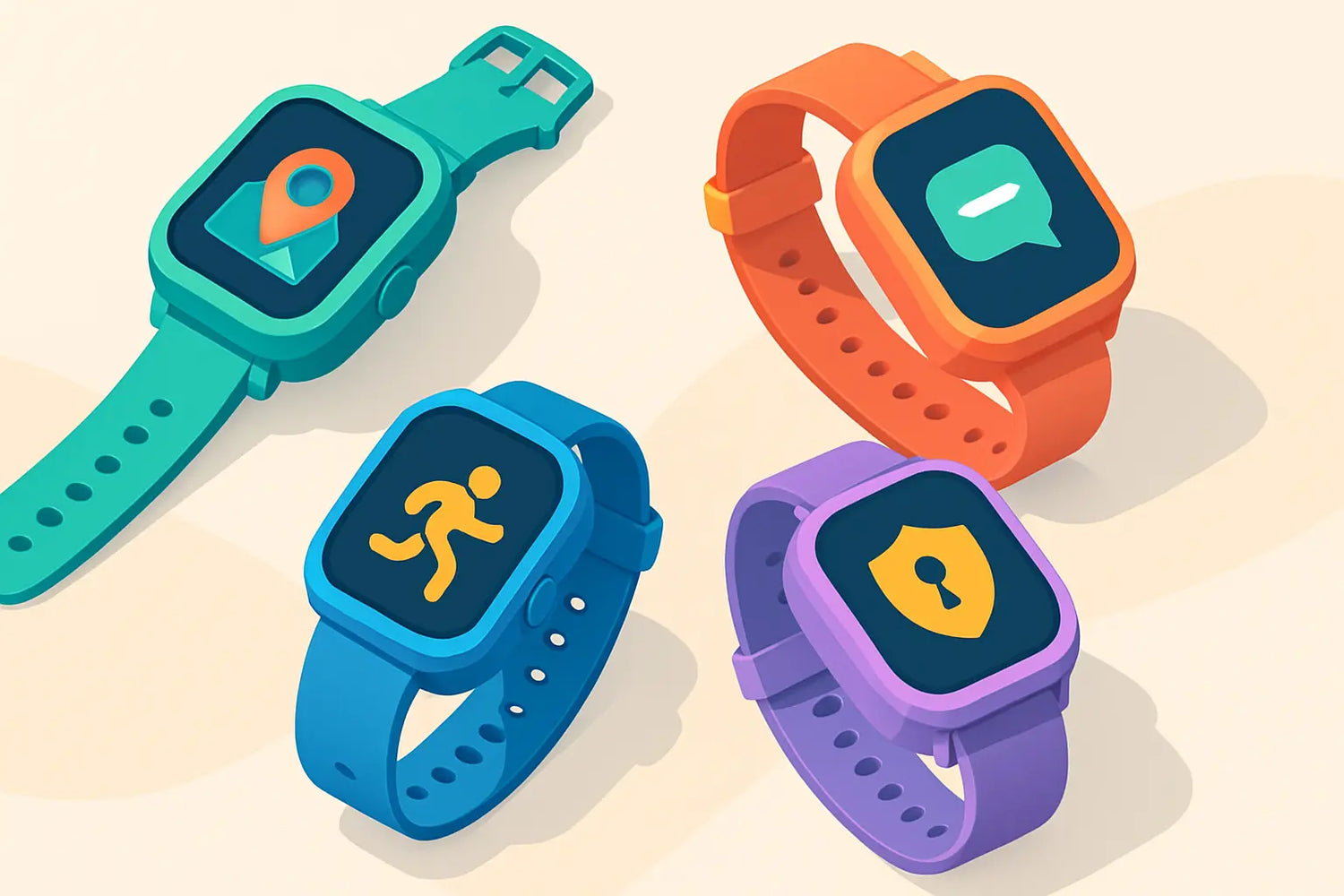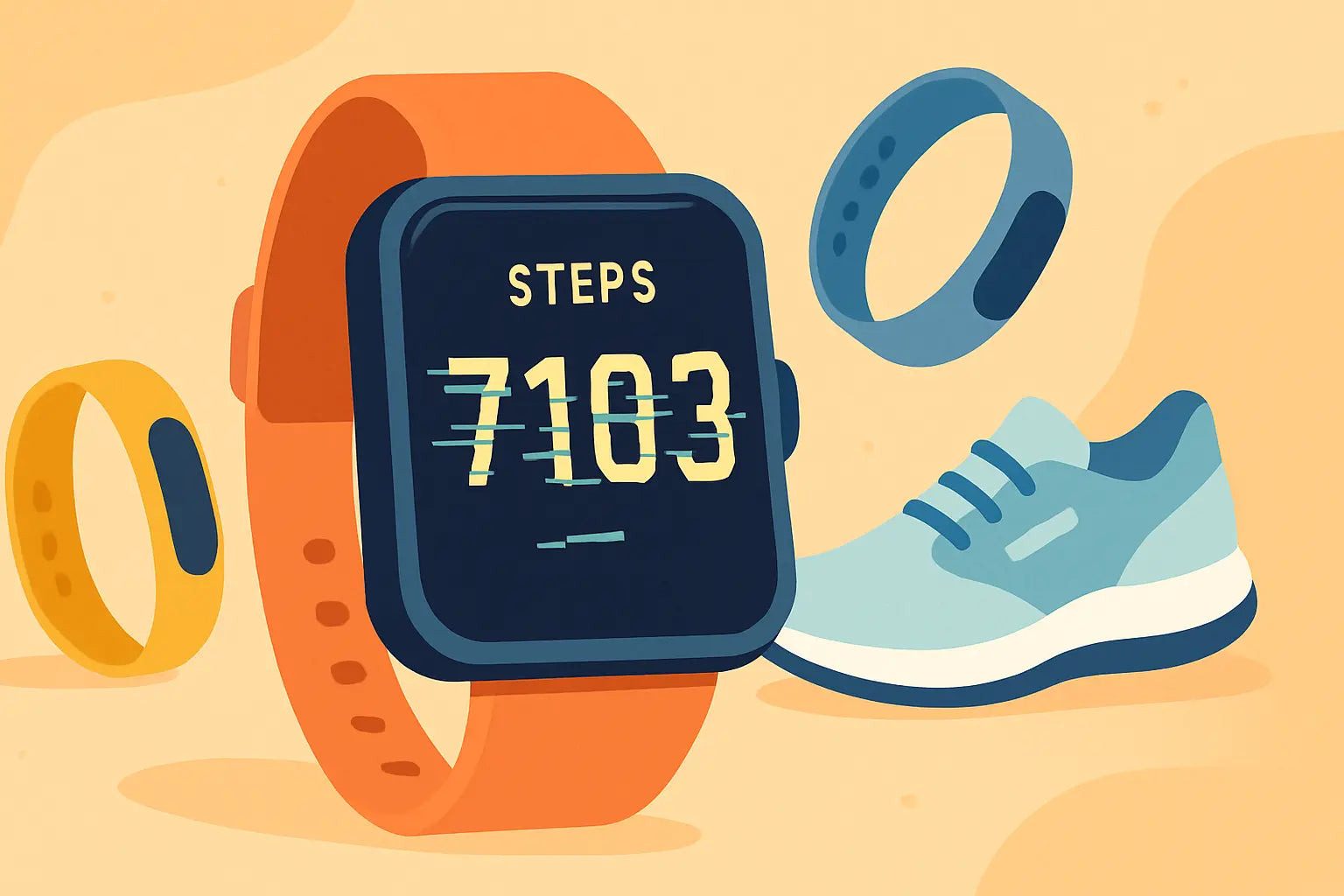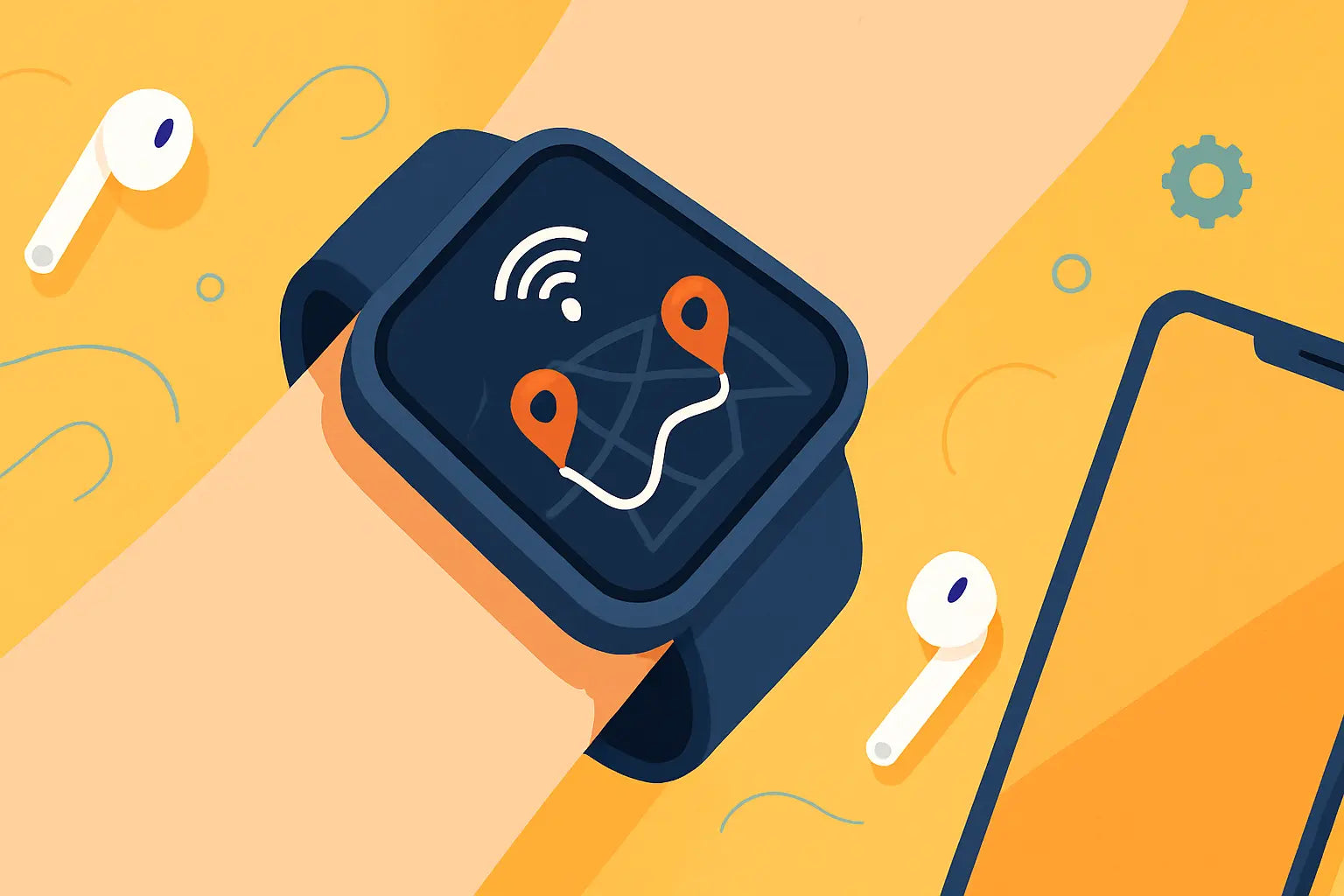Short answer: For most UK families, the best kids smartwatch in 2025 is Garmin Bounce for ages 7-12, with Xplora X6Play a close second for camera and games. For teens, pick Apple Watch 11 Family Setup on EE, O2, or Vodafone, or Samsung Galaxy Watch 9 paired to Android.
Why a kids smartwatch in 2025 matters
Smartwatches give location awareness, fast contact, and activity tracking without handing over a full smartphone. In the UK, they help bridge independence on school runs and club nights while keeping parents in control. Costs and subscriptions have improved, and battery life is longer than early models.
Core UK use cases
For primary school children, geofenced alerts and School Mode keep distractions down while enabling check-ins. For after-school sports, water resistance and durable straps matter more than big app stores. For teens, health metrics, safety features, and mobile payments can replace a phone for hours.
Health and activity value
Step goals and activity rings turn movement into daily challenges, which research shows boosts adherence. Watches like Garmin Bounce and Xplora count steps reliably and issue gentle nudges to move every hour. For teens, Apple Watch 11 and Galaxy Watch 9 add VO2 max estimates and heart notifications.
What smartwatches are safe for kids?
Start with compliance: look for UKCA and CE marks and a published SAR below 2.0 W/kg for head and body. Choose models with contact whitelists, tamper alerts, School Mode, and SOS buttons or gestures. Check encrypted data paths, parental approvals for contacts, and GDPR-compliant cloud hosting.
Hardware and durability factors
Pick 5 ATM or IP68 water protection for rain and swimming lessons. A raised bezel and Gorilla Glass or similar can prevent cracked screens in playtime. Soft silicone straps sized for 120-170 mm wrists keep a snug fit without irritation.
Privacy and parental consent
Look for parental dashboards that show login history, location request logs, and exportable data. Family Setup on Apple Watch 11 allows guardian controls without a child having an iPhone. Xplora and Garmin accounts require an adult to approve contacts and app updates.
Are there GPS-enabled smartwatches for kids?
Yes, several kid-focused models offer GPS with periodic pings as fast as every 60 seconds. Garmin Bounce and Xplora X6Play both support live maps, geofences, and location history. Apple Watch 11 and Galaxy Watch 9 provide high-accuracy dual-band GPS for teens.
Accuracy and battery trade-offs
High-frequency GPS updates drain batteries faster than 5 to 15 minute intervals. Expect 1.5 to 3 days on kids watches with LTE and GPS, and 18 to 36 hours on advanced teen watches. Wi-Fi positioning can backfill location indoors to save energy.
UK networks and coverage
For LTE models, check eSIM or nano SIM support on EE, O2, Vodafone, or Three. Family Setup for Apple Watch 11 uses eSIM provisioning on major networks in the UK. Xplora X6Play accepts nano SIMs and supports common UK 4G bands.
Top picks by age and budget
Ages 5 to 8 - starter options
Garmin Vivofit Jr 3 is screen-light, swim-friendly, and runs on a coin cell for up to 1 year. There is no calling or GPS, which suits families avoiding connectivity at this age. Price typically lands around £69 to £89 in the UK.
Ages 8 to 12 - calls and GPS
Garmin Bounce adds LTE messaging, live location, geofences, and chores, with about 2 days of battery and a 5 ATM rating. Xplora X6Play offers 4G calling, a 5 MP camera, step rewards, IP68 water protection, and roughly 2 days of use. Expect £159 to £199, plus optional monthly connectivity fees from £3 to £10.
Teens 13 plus - full-featured wearables
Apple Watch 11 with Family Setup enables SOS, Schooltime, cycle and heart notifications, and Apple Pay, with 50 m water resistance. Battery commonly runs 18 hours in standard mode and up to 36 hours in Low Power. Samsung Galaxy Watch 9 and Galaxy Watch 8 suit Android teens with 5 ATM, IP68, fall detection, and 40 to 60 hour batteries.
At-a-glance comparison
| Model | Best age | GPS | Calls | LTE or SIM | Battery | Water | UK price |
|---|---|---|---|---|---|---|---|
| Garmin Vivofit Jr 3 | 5 to 8 | No | No | N/A | Up to 1 year | 5 ATM | £69 to £89 |
| Garmin Bounce | 7 to 12 | Yes | Yes | LTE subscription | Up to 2 days | 5 ATM | £159 to £179 |
| Xplora X6Play | 6 to 12 | Yes | Yes | Nano SIM 4G | About 2 days | IP68 | £169 to £199 |
| Apple Watch 11 | 13 plus | Yes | Yes | eSIM cellular | 18 to 36 hours | 50 m | From £399 |
| Samsung Galaxy Watch 9 | 13 plus | Yes | Yes | Bluetooth or LTE | 40 to 60 hours | 5 ATM IP68 | From £299 |
| Samsung Galaxy Watch 8 | 13 plus | Yes | Yes | Bluetooth or LTE | Up to 48 hours | 5 ATM IP68 | From £269 |
Connectivity and costs to expect
Kid watches with LTE usually need plans from £3 to £10 per month, with location updates affecting data usage. Apple Watch 11 Family Setup eSIM lines typically add £5 to £7 to a monthly bill. Wi-Fi fallback can reduce data costs at home and school.
Features that really matter
Look for School Mode timers, approved-contact calling, and SOS that sends both a call and a live location. Battery life above 30 hours makes weekend trips easier without nightly charging. Water protection of 5 ATM or IP68 avoids worry during PE and swimming.
Buying checklist
- Age fit and size
- GPS update rate
- School Mode options
- SOS and alerts
- Battery life claims
- Water protection rating
- Network compatibility
Real-world battery expectations
With GPS every 1 to 5 minutes and a few calls, Garmin Bounce and Xplora often reach 36 to 48 hours. Apple Watch 11 in Low Power with fewer Siri tasks stretches beyond a school day and sports. Samsung Galaxy Watch 9 with AOD off lasts roughly 2 days for teens.
Straps and accessories that fit small wrists
Comfort and hygiene matter because kids sweat more during sport and playground breaks. Hypoallergenic silicone bands with secure loops resist tugs and quick changes at clubs. For teens on Apple, swap to breathable bands via our Apple Watch straps and add chargers or cases from our Apple Watch accessories to keep gear protected.
Setup and parental controls quick guide
- Create guardian account
- Whitelist contacts
- Enable School Mode
- Set geofences
- Tune SOS settings
- Limit app installs
- Review weekly reports
Durability and repairs
Choose toughened glass and raised bezels if your child skates or cycles. A spare strap avoids downtime if a pin is lost during PE. Check manufacturer repair options and accidental damage coverage to control costs.
Data and safety numbers to know
Most kids watches ping GPS every 1 to 15 minutes by default to balance battery and visibility. Geofence radii of 100 to 200 meters reduce false alerts in dense cities. UK SAR limits mirror EU thresholds at 2.0 W/kg averaged over 10 g of tissue.
Frequently asked questions
Can my child use a smartwatch without a phone?
Yes, many kid watches work standalone with LTE or Wi-Fi and a parent app. Apple Watch 11 with Family Setup lets a child use the watch without owning an iPhone. Xplora X6Play can call approved contacts with a SIM and no phone.
Do schools allow smartwatches?
Policies vary by school and academy trust. School Mode that locks apps and mutes alerts is widely accepted when watches are used as timepieces. Always confirm with your school office before purchase.
How accurate is GPS for kids watches?
In cities with tall buildings, expect 5 to 50 meter error. In suburban parks, accuracy often tightens to 3 to 10 meters. Dual-band GPS on teen watches like Apple Watch 11 can improve consistency near glass and steel.
Which networks work best in the UK?
EE and Vodafone commonly provide strong suburban coverage, while O2 and Three can excel in some cities. Check your postcode on each network map before adding an eSIM or SIM. For travel, confirm roaming support and caps.
Are there ongoing subscription fees?
Yes, LTE connectivity usually adds a monthly fee. Expect £3 to £10 for kids plans and £5 to £7 for Family Setup eSIM lines. Some brands also offer premium safety features for a small monthly charge.
What about battery safety?
Reputable brands meet UN38.3 transport and IEC safety standards for lithium cells. Avoid third-party chargers without certification. Replace swollen batteries immediately via the manufacturer.
Conclusion - What is the best smartwatch for kids in 2025?
For UK families in 2025, Garmin Bounce is the best all-round kids smartwatch for ages 7 to 12 thanks to GPS, School Mode, and solid 2 day battery. Xplora X6Play is a great alternative if camera and 4G calling are priorities. For teens, choose Apple Watch 11 or Samsung Galaxy Watch 9 for full health and safety features.




Leave a comment
All comments are moderated before being published.
This site is protected by hCaptcha and the hCaptcha Privacy Policy and Terms of Service apply.